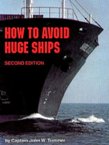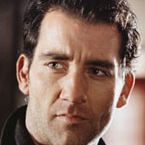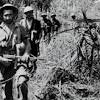warspite1
Posts: 41353
Joined: 2/2/2008
From: England
Status: offline

|
Dunkirk Spoiler Alert
quote:
ORIGINAL: Skyros
https://queenofthinair.wordpress.com/2017/07/25/dunkirk-not-a-war-movie/amp/
warspite1
Is there a doctor in the house?
quote:
This is not a war movie at all.
Er…. permit me, if you will, the opportunity of explaining: YES. IT. IS. Are we clear?
quote:
Yes, I know that Dunkirk was part of World War II. Yes, I know there are soldiers, sailors and airmen and things exploding. Yes, there is some combat in the film which results in death and harm. That said, this is not a conventional war movie
Okay, don’t understand your point, but at least you have added a word that now makes your article perhaps worth reading on – even if that addition serves only to make a nonsense of your first point…. let's hope you don't repeat this first point later...
quote:
That said, this is not a conventional war movie, at least not as Americans would expect, because it is not really about war as Americans see war.
Are Americans a different species then? Why are you talking about ‘Americans’ like they are one homogenous mass? As this and other threads on this topic alone have proved, ‘Americans’ don’t have a view. Individual Americans do – and as far as this film is concerned - that view is mixed – just as it is for every other national grouping. People are people. Quelle surprise.....
quote:
This film does a great job of conveying the experience of the historical event which takes place after a major defeat, and is the prelude to the next phase of the war.
When you say the historical event, do you mean the war (even though this is not a war film….)? And why? Why do you separate Dunkirk from the Battle of France? Okay, you can if you want – although the evacuation from Dunkirk can be seen as part and parcel of the debacle that was Case Yellow – it was the closing stages, the finale of the German attack. The ejection of over 300,000 men from the continent, the death and surrender of thousands more, was PART of the major defeat - it didn't FOLLOW a major defeat.
It makes more sense for Case Red to be treated separately if one must for that can truly be seen to be a new phase of the battle for France.
quote:
So Dunkirk is an intermission of sorts.
Say whut? I thought you just said a battle on this scale was an intermission.
quote:
And an intermission is a time for pause, for reflection and for preparing for the next act.
Oh **** you did. Perhaps you can confirm which part of ‘pause and time for reflection’ marries up with the fact that RN and French sailors had nine destroyers sunk from under them – along with some 200 other vessels, over 150 RAF aircraft alone – not to mention the losses – the dead and captured British and French troops. The troops, the sailors, the airmen were racing against time to get as many troops off the beaches before the Germans completed their rout of the Allied armies. Destroyers and the larger civilian vessels went down with a handful of survivors - and you think this was an intermission......wow. What's the definition of intermission where you hail from?
quote:
And that is precisely what this film is: an existential reflection on survival, defeat and moral and existential meaning amidst all that.
No – it’s a war film – it’s a bloody war film!!
quote:
It is a reflection upon the pain of war when it does not go well, when there is no decisive winning battle, when there seems no place for individual heroism, when courage seems to be about enduring and surviving.
The effect on an individual following the viewing of Dunkirk may well be to reflect on what happened and why - but that is no different to coming out of the cinema after seeing Saving Private Ryan; it made one reflect. That is the essence of a good film – but you are making too much of this? When I bought my ticket it was because I wanted to see a war film. When I sat in the cinema, I sat enjoying a war film. I was not contemplating my naval, weighed down with existential whatever… I was watching a war film - and thought about it afterwards like I would any decent, thought-provoking film.
quote:
So what do I mean: This is not a war movie?
I don’t know, and frankly, I am afraid to ask……
quote:
This film is about the scale and horizon of the event,
I thought it was about Dunkirk….
quote:
…with little (except intermittently) focus on characters or the enemy. We do not have a chance to really get emotionally involved with any one character,
Well as it spares us from bizarre love triangles and lines like “Will this war ever catch up with us” that’s a good thing right?
quote:
I don’t actually think the Germans are The Enemy. If this is a film about survival and endurance, then the true enemy at Dunkirk is Time…..
Well, actually I think you’ll find that those bombs from the Stukas and Heinkels, the torpedoes, the rounds from the Messerschmitts, the artillery shells, the machine gun and the rifle fire does not emanate from old father time. It emanates from the German war machine. You see, the enemy were the Germans. Their shrinking of the Allied pocket around Dunkirk meant that time was of the essence – but old father time, the tooth fairy, the man in the moon? No. None of these were the enemy - it was the Germans.
quote:
When I think of a war movie, I think of Saving Private Ryan, Platoon, Patton, Enemy at the Gates, The Longest Day.
… and Dunkirk…..
quote:
The classical formula is that it is largely army especially infantry centric (though not always) with the focus on a small group of characters (the band of brothers) that we get to know and follow through the film.
Okay that is a ‘classic’ formula but it doesn’t make Dunkirk not a war film. And if you think the ‘classic’ formula always makes for a good war film well I defy you to find anyone (with a brain) that was pleased to get to know Rafe and his sidekick (whatever his name was) or anyone who actually followed the chuckle brothers on their ridiculous journey during which they saved Britain, blew off the Japanese and then bombed the crap out of Tokyo – all the while porking some nurse and getting Mr Pres so riled up he gets out of his wheelchair....
quote:
There is often gritty, intense combat portrayed showing the harm and carnage of war (blood and other war porn elements) and we are invited to identify with the heroes/protagonists and feel enmity towards the enemy who are portrayed as evil, wrong, mean, cruel and all things to be despised.
But this is relatively new. War films – even films that you would consider a war film but were made in a different age, didn’t centre on blood and guts. They were often more subtle. Back to Dunkirk, how many people don’t know the hideousness of the Nazi regime? I identified with the protagonists during Dunkirk. When Tom Hardy and his Scottish flying partner were flying around in the Spitfire I did not feel that I was missing out because I hadn’t previously seen them in some embarrassingly god-awful scene with a tasty nurse…..
Furthermore, this lack of getting to know the characters didn’t matter a jot to my elder warspite who was heartbroken by the fate of both George and the Frenchman.
quote:
Good versus evil with a decisive battle or event as part of a clear narrative arch that results in redemption, victory and resolution.
Who – please….. WHO watching Dunkirk did not know the backstory? That this was good vs evil? A decisive battle?? What do you actually think was happening? Why were all these ships being sunk and troops being bombed? Throughout the film it was made clear. “We need our army back”. Comment was made that “we are saving our aircraft and ships for the battle to come” and “victory is survival”. I mean how much clearer can it be made? The troops themselves thought they would be vilified upon their return - but when the public, expecting nothing but the worst, suddenly find that their army has returned thanks to a heroic effort (and thus there will be no surrender) - the relief far outweighs any anger or disappointment about the battle.
quote:
This film has none of that. Oh there is combat, but there is little blood – although still a great deal of grit, messiness and destruction.
Yes, it’s a war film. There is probably as much blood as in Dam Busters or Battle of Britain or the Green Berets.
quote:
There are a few moments of heroism, but they come mostly at the hands of civilians rescuing soldier, which of course upends the traditional war movie trope of civilians as victims.
Right that’s because it happened. Why does that not make this a war film? How many war films have civilians helping escaping POW’s (Great Escape) or helping commandoes in their bid to assassinate high ranking Nazi’s (Operation Daybreak) or just generally helping (A Bridge Too Far). Schindler’s List is a war movie. Lots of civilians in that one – including Oscar himself.
quote:
This is not a war movie.
Really? Did you just repeat that again after all I’ve told you?
quote:
…..it highlights this really interesting question about what a war movie is and what it is supposed to do. I wonder if we need to think more deeply about what a war movie ought to be and what it ought to do?
Er…. entertain, tell a story….. er…. where are we going with this?
quote:
Should it follow the standard hero/action film formula with a clear and unambiguous moral message and arc? What level of blood and carnage (and of what kind – individual versus collective) should be present and seen? And what do these expectations say about how we want to think about war? How do these expectations then shape how we think about and experience (for those who fight) actual wars?
Why does there need to be some kind of standard? There never has been before. Tastes, ideas, story-telling, realism – these are all elements that come and go like fashions. Why are some people getting on one over Dunkirk?
quote:
This film is a search for meaning when the standard meanings and narrative frames have utterly failed.
I think you are over-thinking this one. What meaning and narrative frames (whatever they are) have failed? Look how complicated is it? Britain and France are on their way to defeat. The cream of the French and practically the entire British armies are surrounded. Those in the know realised the French were finished. The British likely would be unless they get their army home. It’s a race against time because the Germans are closing the vice. Right what the hell are you searching for here?
quote:
How do we find meaning when we are one speck on a beach just trying to get out alive……. and there seems little that any individual can do to change the course of events?
Ask the poor sods at Omaha? Where's the difference? Apart from the fact that one is trying to get off the beach inland and the other off the beach onto a boat/ship.
quote:
Even Branagh as a high ranking naval officer seems bound and stuck, just as much as the grunt.
It’s called war – and its sheer bloody hell. The fact one has egg on their hats does not give them all the answers when all is turning to crap. Although Branagh’s real life character (probably William Tennant) was instrumental in identifying the importance of the Mole.
quote:
The reading (by one of the returning soldiers) at the end of the film of Churchill’s famous speech feels mocking and stirring at the same time.
Mocking? Why? What was mocking about it? Stirring yes, but I must have missed the mocking as I was too busy removing a massive lump from my throat and wiping a tear or two from the old visage.
quote:
The soldier who reads the speech has just escaped with his life and returned home to acclaim, dirty, perhaps traumatized and exhausted. Normally that is the victorious end. But here it is only the beginning.
We are back to where we were at the start. Allow me to explain: NO. IT ISN’T. Was it the end once Midway was won? Did they all pack up and go home after surrounding the Germans at Stalingrad? Did the Germans surrender after Battle of Britain – or was that just another beginning? Were no more RN ships sunk after the (Sink the) Bismarck? Just how many war films actually show the victorious end? From that point of view Dunkirk is no different to 99% of war films - so why all this psycho-babble about existential thingumabobs?
I haven't bothered to comment on the other post on that website as, unlike this one, its essentially just a negative review. No problem, that his opinion (although wrong imo) - but unlike this article at least he's not trying to be oh so clever, spouting nonsense about the answer to life, the universe and everything 
< Message edited by warspite1 -- 7/29/2017 8:41:32 AM >
_____________________________
England expects that every man will do his duty. Horatio Nelson October 1805  |
 Printable Version
Printable Version




















 ) worked really well in Dunkirk. Especially the climactic scene as the various strands came together – troops aboard the Dutch boat, the sinking ‘minesweeper’, the Spitfire/Me-109/Heinkel duel and the Moonstone’s rescue of the troops and sailors. Downloaded this for my ipod
) worked really well in Dunkirk. Especially the climactic scene as the various strands came together – troops aboard the Dutch boat, the sinking ‘minesweeper’, the Spitfire/Me-109/Heinkel duel and the Moonstone’s rescue of the troops and sailors. Downloaded this for my ipod 


 I need to rectify that oversight...
I need to rectify that oversight... 




 New Messages
New Messages No New Messages
No New Messages Hot Topic w/ New Messages
Hot Topic w/ New Messages Hot Topic w/o New Messages
Hot Topic w/o New Messages Locked w/ New Messages
Locked w/ New Messages Locked w/o New Messages
Locked w/o New Messages Post New Thread
Post New Thread